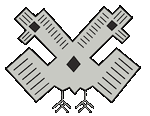Momostenango
Totonicapán, Guatemala
The Spanish brought sheep and floor looms to the Maya and forced them into workshops. The wool industry still continues in the highlands of Guatemala.
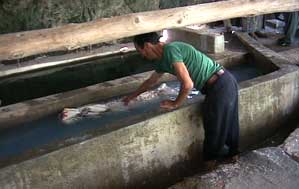
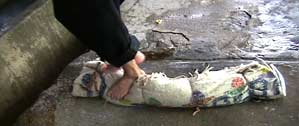
After a blanket is woven, it is taken higher up in the mountains to a hot springs bath where it is dipped and wrung out seven times to shrink or felt it. Photo by Kathleen Mossman Vitale 2005.
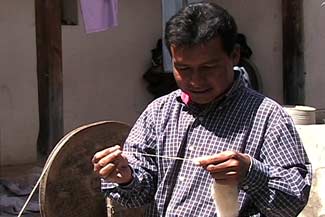
Jesus Ajanel Vicente still remembers the skills he learned as a child in Momostenango, such as spinning wool. Photo by Kathleen Mossman Vitale 2005.
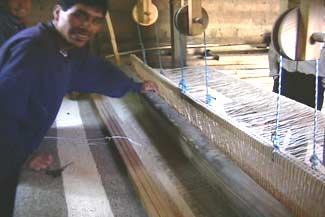
In Momostenango, huge floor looms are used to weave large woolen blankets, which are subsequently shrunk or felted. Photo by Kathleen Mossman Vitale 2005.
